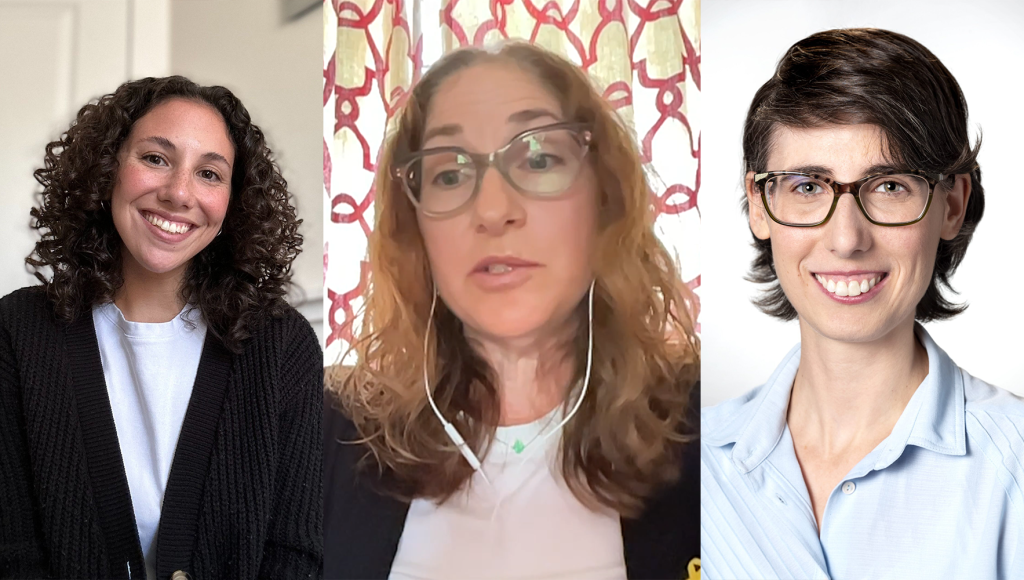Education
Jewish Students Face Heightened Tensions as New Academic Year Begins

As the new academic year commences across Canadian post-secondary institutions, Jewish students are confronting an atmosphere marked by rising tensions and hostility. Reports indicate that campuses such as Concordia University in Montreal and Toronto Metropolitan University are experiencing a notable increase in antisemitic sentiments and actions. The situation raises significant concerns about the safety and well-being of Jewish students as they navigate their educational environments.
At Concordia, the official student handbook appears to endorse anti-Israel protests, which has alarmed many within the Jewish community. Meanwhile, at Toronto Metropolitan University, a troubling incident occurred during an orientation session where masked students confronted the provost, labeling her a coward and demanding she denounce actions in Gaza. Such confrontations contribute to an environment that many Jewish students find intimidating.
A recent study released on September 3 by the Aristotle Foundation, a Calgary-based conservative think tank, highlights the precarious situation for Jewish university students. The findings reveal that these students are “four times more likely than the average student to be ‘very reluctant’ to share their views on religion during class discussions.” This hesitance stems from fears of potential backlash from both professors and peers. The survey further indicates that 15 percent of Jewish students reported experiencing daily abuse related to their identity, while a staggering 84 percent reported facing antisemitism at least once a year.
In light of these alarming statistics, some Jewish students and faculty are seeking ways to counter the negative atmosphere on campuses. Daphne Wornovitzky, a recent graduate from the University of Calgary, shared her experiences during a recent episode of The CJN’s North Star podcast. Wornovitzky recounted an event last fall where former Israeli government spokesman Eylon Levy was prevented from speaking due to a blockade by anti-Israel protesters. The incident led to Jewish students being evacuated for their safety, illustrating the heightened tensions on campus.
Wornovitzky, who was pursuing her master’s degree in social work at the time, described how classmates and professors expressed anti-Israel opinions following the escalation of violence on October 7. She noted a significant shift in how she was treated, with some classmates openly discussing their support for anti-Israel protests. Despite the discomfort, Wornovitzky decided to advocate for change within her department. She aimed to hold faculty accountable to the ethical standards of their profession, emphasizing the need for a respectful dialogue that accommodates diverse viewpoints.
The conversation about campus climate extends beyond just individual experiences. Melanie Trossman, a seasoned social worker and former field instructor at the University of Calgary, echoed Wornovitzky’s sentiments. Trossman highlighted her own experiences with antisemitism and expressed the importance of creating an inclusive environment within social work programs. She noted that, despite having supportive colleagues, instances of antisemitism are still prevalent and need to be addressed actively.
In contrast, Gdalit Neuman, a PhD candidate at York University, shared her perspective on the pervasive anti-Israel sentiment in academia. Neuman pointed out that over the past 25 years, there has been a noticeable increase in anti-Zionist rhetoric, which often crosses the line into antisemitism. She described a recent experience at an academic conference where the narrative surrounding Israel as an “apartheid state” was prevalent, reflecting a broader trend in academic discourse.
The discourse surrounding freedom of expression on campuses is crucial, particularly as Jewish students navigate their identities amid rising tensions. Wornovitzky’s advocacy efforts exemplify a proactive approach within the Jewish community to address these challenges. Her focus on building a supportive network and seeking accountability from faculty serves as a potential model for others facing similar issues.
As the academic year unfolds, the Jewish community watches closely to see how these dynamics evolve. The experiences shared by Wornovitzky, Trossman, and Neuman highlight the urgent need for dialogue and understanding in educational spaces. While the climate may be fraught with challenges, there remains hope that increased awareness and advocacy can foster a more inclusive environment for all students.
-

 Lifestyle2 weeks ago
Lifestyle2 weeks agoWinnipeg Celebrates Culinary Creativity During Le Burger Week 2025
-

 Science4 weeks ago
Science4 weeks agoMicrosoft Confirms U.S. Law Overrules Canadian Data Sovereignty
-

 Education3 weeks ago
Education3 weeks agoRed River College Launches New Programs to Address Industry Needs
-

 Technology3 weeks ago
Technology3 weeks agoDragon Ball: Sparking! Zero Launching on Switch and Switch 2 This November
-

 Science4 weeks ago
Science4 weeks agoTech Innovator Amandipp Singh Transforms Hiring for Disabled
-

 Technology4 weeks ago
Technology4 weeks agoWorld of Warcraft Players Buzz Over 19-Quest Bee Challenge
-

 Technology4 weeks ago
Technology4 weeks agoGoogle Pixel 10 Pro Fold Specs Unveiled Ahead of Launch
-

 Science3 weeks ago
Science3 weeks agoChina’s Wukong Spacesuit Sets New Standard for AI in Space
-

 Science4 weeks ago
Science4 weeks agoXi Labs Innovates with New AI Operating System Set for 2025 Launch
-

 Technology4 weeks ago
Technology4 weeks agoNew IDR01 Smart Ring Offers Advanced Sports Tracking for $169
-

 Technology4 weeks ago
Technology4 weeks agoGlobal Launch of Ragnarok M: Classic Set for September 3, 2025
-

 Technology4 weeks ago
Technology4 weeks agoFuture Entertainment Launches DDoD with Gameplay Trailer Showcase
-

 Technology4 weeks ago
Technology4 weeks agoInnovative 140W GaN Travel Adapter Combines Power and Convenience
-

 Technology4 weeks ago
Technology4 weeks agoHumanoid Robots Compete in Hilarious Debut Games in Beijing
-

 Business4 weeks ago
Business4 weeks agoNew Estimates Reveal ChatGPT-5 Energy Use Could Soar
-

 Science4 weeks ago
Science4 weeks agoNew Precision Approach to Treating Depression Tailors Care to Patients
-

 Health4 weeks ago
Health4 weeks agoGiant Boba and Unique Treats Take Center Stage at Ottawa’s Newest Bubble Tea Shop
-

 Technology4 weeks ago
Technology4 weeks agoDiscover the Relaxing Charm of Tiny Bookshop: A Cozy Gaming Escape
-

 Science4 weeks ago
Science4 weeks agoNew Study Reveals Surprising Impact of Gratitude on Helping Behaviors
-

 Technology4 weeks ago
Technology4 weeks agoQuoted Tech Launches Back-to-School Discounts on PCs
-

 Technology4 weeks ago
Technology4 weeks agoBorderlands 4 Promises Massive Changes with 30 Billion Guns
-

 Lifestyle3 weeks ago
Lifestyle3 weeks agoVancouver’s Mini Mini Market Showcases Young Creatives
-

 Science4 weeks ago
Science4 weeks agoInfrastructure Overhaul Drives AI Integration at JPMorgan Chase
-

 Education3 weeks ago
Education3 weeks agoAlberta Teachers’ Strike: Potential Impacts on Students and Families










